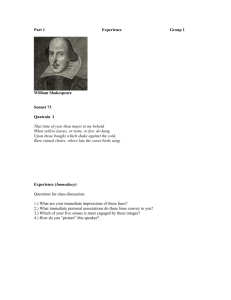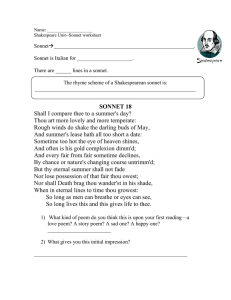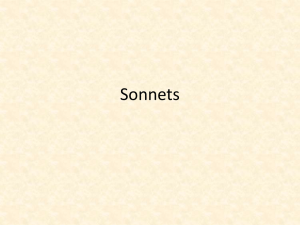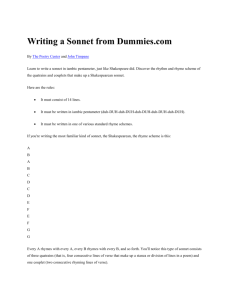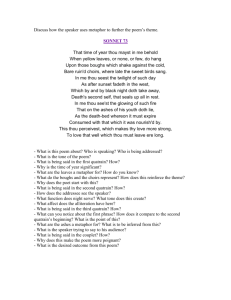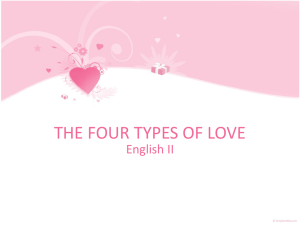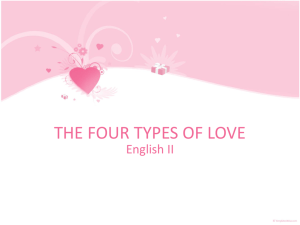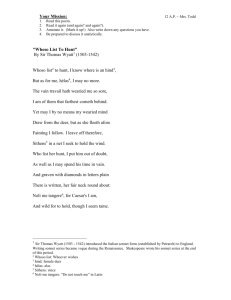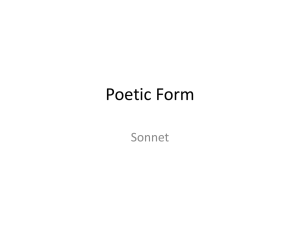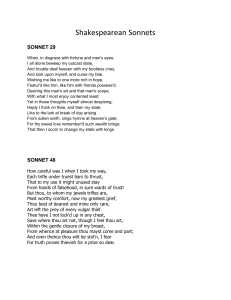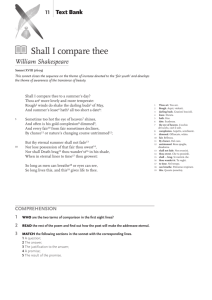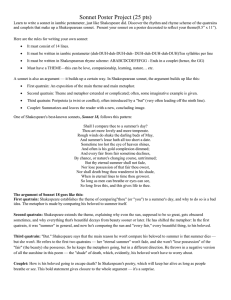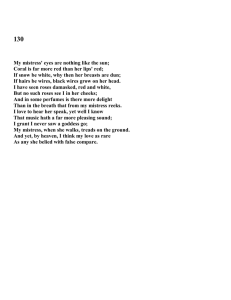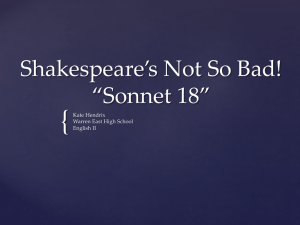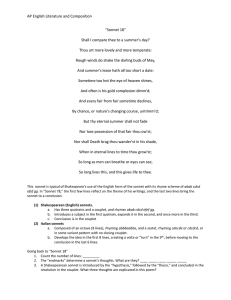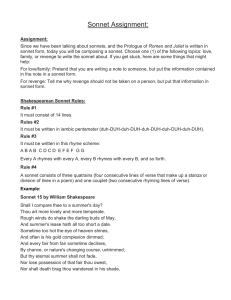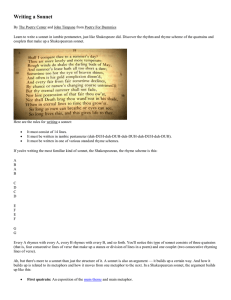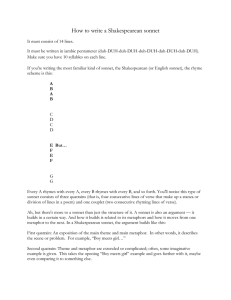Sonnet 73
advertisement
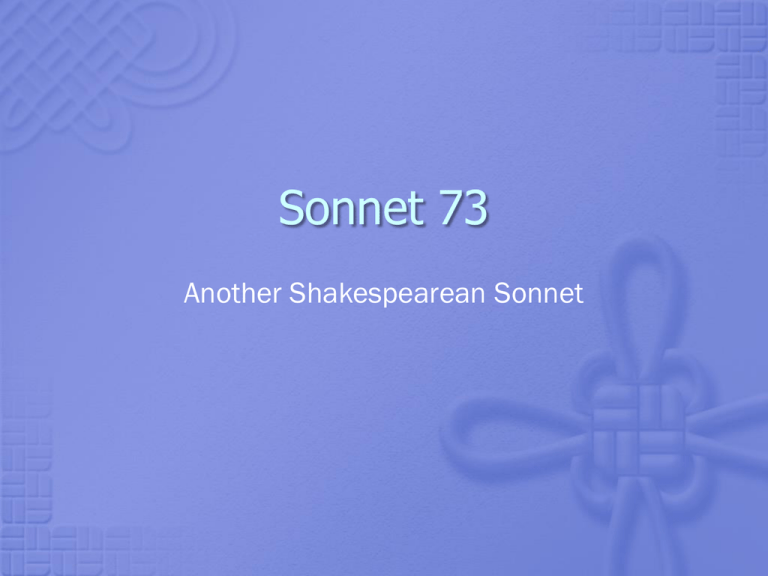
Sonnet 73 Another Shakespearean Sonnet Sonnet 73 1st Quatrain Year - Fall 2nd Quatrain Day Twilight 3rd Quatrain Fire - Coals “This” is the fact that he is old… Notice how line 1 flows into line 2 with no pause from punctuation. This is called enjambment. That time of year thou mayst in me behold When yellow leaves, or none, or few, do hang Upon those boughs which shake against the cold, Bare ruined choirs, where late the sweet birds sang. In me thou see'st the twilight of such day As after sunset fadeth in the west; Which by and by black night doth take away, Death's second self, that seals up all in rest. In me thou see'st the glowing of such fire, That on the ashes of his youth doth lie, As the death-bed, whereon it must expire, Consum'd with that which it was nourish'd by. This thou perceiv'st, which makes thy love more strong, To love that well, which thou must leave ere long. The rhymed couplet at the end is a paradox, a puzzling statement that is somehow still true. •This poem uses what is known as “the natural metaphor” •In this extended metaphor, each stage of life is compared to different stages within the cycles of nature and time. Sonnet 73 Q1 Q2 Q3 The speaker is Part of life already lived The part of life he is in… in the fall of his life the spring and summer Approaching death in the twilight of the day the morning and noon Approaching death In the glowing coals The ashes of youth His fire is about to burn out Year Time is rapidly shortening. This guy is OLD!!! Day Hour His beloved should perceive, or notice that their time is running out. Is the person he’s writing to also old? “The Sound of the Sea” By Longfellow •How will this sonnet be different form the Shakespearean sonnets? •How many line will it have? •How many syllables per line? •How are the stanzas arranged? •What is the rhyme scheme? The sea awoke at midnight from its sleep, And round the pebbly beaches far and wide I heard the first wave of the rising tide Rush onward with uninterrupted sweep; A voice out of the silence of the deep, A sound mysteriously multiplied As of a cataract from the mountain's side, Or roar of winds upon a wooded steep. So comes to us at times, from the unknown And inaccessible solitudes of being, The rushing of the sea-tides of the soul; And inspirations, that we deem our own, Are some divine foreshadowing and foreseeing Of things beyond our reason or control.
